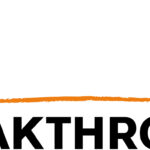Indie directors = business transformers
Victoria Carter emphasizes the value of good governance and independent directors to growing New Zealand businesses.
1K
Victoria Carter.
There is no legal requirement for any privately owned company to have a Board of Directors. However the disciplines of a Board structure and processes will often set the scene for a well-run company. Adding independent directors can then further enhance the organization.
Roughly 50 percent of New Zealand businesses are family owned says the Institute of Directors. Their strengths over competitors are often ingenuity, passion, strong employee, supplier and customer relationships and specialist knowledge.
However a family business can have some distinct disadvantages the IOD says. For example:
• Being too close with day to day matters.
• Insufficient accountability.
• Lack of strategic direction.
• Lack of flexibility to move quickly.
• Being slow to comply with health and safety, employment requirements.
• Conflicting views about the need for change.
“Step one,” says Kim Ellis, an experienced director of private and public companies, “is for a company is to embrace the principles of governance, regular meetings, good financials, holding the CEO to account and so on.”
Many small companies don’t appreciate the importance of the structure of a regular meeting, starting off with an agenda, a CEO’s report, recording of significant decisions, reviewing the accounts, and then the outcomes – the minutes and action points to begin the process again at the next meeting – holding the CEO and management to account.
Kim Ellis points out that for many family companies where there is a major shareholder who has ruled the roost it can be a step too far to bring in an independent director and introduce good governance principles at the same time. The learning curve is too great.
Adding one or more independent directors can transform a family company. However, Ellis warns, “there is no point in putting an independent director onto a board if you don’t have good governance in place first. Not only is it risky for the independent but there is often too much of a disconnect and it ends up being an exercise in frustration for everyone.
“The biggest Achilles heel for Kiwi family businesses is their reluctance to spend money on directors because they think they know everything about their business and they don’t appreciate the value an independent can bring with fresh eyes and a different perspective,” adds Ellis. “There is often a real need for their view, however family members are not willing to listen to the advice.
“The primary role of the Board is to appoint the CEO and if you can’t appoint or discipline them you have got problems, especially if they are making poor decisions or ignoring Board decisions.”
Vital experience
Once a company gets to a particular size or needs to grow, the importance of the principles of governance and the value of having professional and independent directors becomes more pronounced. Independent directors can bring vital disciplines to the Boardroom which result in stronger growth and a more secure business.
Says Denham Shale, a well-known company director, “the main benefit from an independent director (one who doesn’t hold shares in the company) comes from the experience the director has from being involved in other companies.
“This director can usually see the ‘red flags’ that crop up in areas which are repetitive no matter what the industry,” says Denham, who is best known for being chairman of The Farmers Trading Company.
One of the most useful things an independent director can do is to ask difficult questions that an owner or manager may not want to ask. They also have the ability to think in a big picture way which an owner-operator may find difficult when they are dealing with the short-term pressures of managing the business.
Sometimes, however, the ideas from an independent may be blocked by the majority voting power. “In this situation the independent director should suggest the appointment of another independent,” says Denham. “In addition to providing another point of view it also gives the cornerstone representative a chance to hear more than one independent view; which should then enable them to give consideration to a wider range of possibilities in any given situation.”
It can be a big adjustment for a majority shareholder/owner who is used to making decisions and not being accountable for them to have independent directors ask questions.
But it will probably lead to better decision-making as well as processes which often empower management.
Focus and structure
Many family owned and small businesses haven’t made the time to think about strategic growth. Introducing this annual focus enables a Board and senior management to think about the company’s direction in a focused and structured way. Once the strategy is agreed the Board can consider the funds needed and best structure, people and roles required to support the growth.
Adds Shale, “having more than one independent director means more alternative suggestions and more support for some aspects of governance which may have been overlooked by the board. Having directors with differing background skills also gives advantage to the company’s discussion of aspects of its business which have arisen thanks to the company’s growth – for example, hedging to cover export sales and similar issues.”
Another issue that affects many family companies is succession. Discussion about the future and whether the next generation will continue the business or whether there needs to be consideration of a sale and when is the best time for this, can be skilfully led by an independent director. They will be invaluable in assisting discussion because they are not directly affected and don’t have emotional overlay of personal relationships.
The outsider’s perspective and the ability to see the big picture is the value an independent director will bring to the board table.
Victoria Carter has had experience as a director of a number of privately owned companies (Kidicorp, JUCY Group) and currently, Tax Management NZ. She is a Chartered Fellow of the Institute of Directors.


